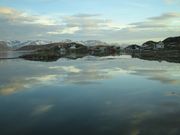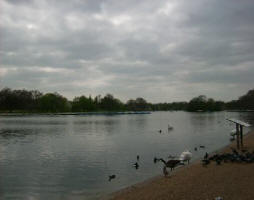- Regional water observation mechanism
- Regional Cooperation Assessment
- Water Quality Monitoring (JP)
- Water scarcity and drought (JP)
- Groundwater (JP)
- Waste water reuse (JP)
- Shared Water Resources Management (JP)
- Linking rural development and water management (JP)
- Waste management
- Water institutions
- Climate Change
- Floods
- Desalination
- Right to Water
- Irrigation
- Satellite data
- Water reports & data
- Hydrology
- Sanitation
- Gender and IWRM
- ArabWAYS
- Non-Revenue Water
- Virtual Water & Water Footprint
- WANA Water Panel
- Water Demand
- Water Governance
- Water Pricing
- Water accounts
- Water nexus Energy
- Geosciences
- Rural Management
 RAMPEDRE Report: The On-line World Report on the Human Right to Water
RAMPEDRE Report: The On-line World Report on the Human Right to Water
Source: http://ierpe.eu/pages/001-rampedre-presentation-en.php
| Released | 15/01/2013 |
|---|
RAMPEDRE Report
The On-line World Report on the Human Right to Water
On July 28, 2010, the UN General Assembly adopted a resolution recognizing access to water and sanitation as a fundamental human right. Few weeks later, October the 1st, the UN Human Rights Council has given the recognition a legally binding character by including the right to water among the rights covered by the International Covenant on Economic, Social and Cultural Rights (ICESCR).
A new phase has therefore been opened at two levels:
a. at legal and institutional level
To what extent the UN resolution will be transferred into national and international / supra-national legislation? Only 11 countries out of 27 member countries of the European Union voted for the resolution. What will they do? Will they introduce the water right in their constitutions? Will they adopt national laws? What the other 16 EU countries that were opposed to it will do?
What will be the implications of the recognition of the human right to water on water ownership, water uses, its international “trade”, the ownership and management of water public services (drinking water distribution, waste water treatment, water desalination...)? Will water and services remain public, in the public hands? Is access to water as a human right compatible with private ownerships and market based management of water? Is the right to access to drinkable water and sanitation still a human right when citizens have to pay a price proportional to the "consumption" of water?
To what extent can our societies submit the water uses to market mechanisms and private capital interests? For example, is it still legally justified to consider as a human right the access to water and sanitation under current rules of water management in the UK where water services and infrastructures have been fully privatized? The same question applies to the regime in force in France, called "private delegation of public service". Can the exercise of a right go through market trade mechanisms and the purchase of water as a consumption good? Citizens have rights, consumers don’t (except for true information, just prices, good quality…).
b. at social and economic level
What will be the effective realization of the human right to water and sanitation? Current trends indicate that situation is worsening in Africa, parts of Asia and parts/cities in South America for 2.6 billion people who don’t have access to latrines. Slight improvements have been made in recent years regarding access to drinking water. In general, however, the situation remains far behind the Millennium Development Goals. Moreover, our societies proclaim that, in the coming years, water quality for human use will become scarcer and more expensive. What will happen in many countries and for the people already living in a context of water stress or without access to water?
Most analysts believe that new water social conflicts and old “traditional” international conflicts will proliferate. Although plausible, this scenario is not acceptable.
This means that if our societies want to guarantee an effective realization of the right to water for all, it is necessary that considerable efforts are made, now, concerning:
- monitoring,
- information / awareness of citizens and public authorities,
- citizen initiative and participation
- strong public means of action
2. What is RAMPEDRE?
RAMPEDRE was born as a "natural" result from the resolution of the UN General Assembly on 28 July 2010 recognizing access to drinking water and sanitation as a human right. It took 62 years for the human right to water to be recognized as a right in itself, independent, by the highest political organization representing the international community.
This is an open online permanent world report on the realization of the right to water for all inhabitants of the planet Earth, following the resolution of the UN General Assembly which has recognized the access to safe water and sanitation as a human right, that is to say: universal, indivisible and inalienable.
A global report, in that it covers all countries and regions of the planet Earth, "the house of the people" of all people, where no human being can be considered "illegal" (it's carrier rights and responsibilities).
A report open because:
− its content is available and accessible to all without charge. RAMPEDRE is a tool of information and knowledge. These are like water, common public goods. Availability and accessibility are the basis of living together, democratic and accountable;
− it is "written" by all those who want to contribute ("RAMPEDRE's population") from and in addition to a basic content written by a network of research centers in various parts of the world ("RAMPEDRE network". The monitoring report will be completed by a group of "wise men").
3. The objectives of RAMPEDRE
Until the UN resolution, access to drinking water was considered an instrumental right to right to life, that is to say, pulling his reason, its legitimacy from being a necessary condition for the right to exist, the right to welfare, the right to development. The right to water was one of the "derived rights", not having in themselves the source of their reason, as the moon gets its light from the sun.
From the UN resolution, policy and socio-economic objectives of the "social struggle" of in the field of water have become threefold:
1 - To promote the recognition of the right to water and sanitation in the legal framework (constitutional or common law) of each state and "supranational" organizations such as the European Union, the Organization of African Unity African or UNISUL (Latin America);
2 – To materialize in the socio-economic community order and the functioning of everyday life, the effective right to water for every person and every human group without any discrimination;
3 - To fully realize the justiciability of the human right to water, no power, no institution, no state can escape the obligation to respect the realization of the right for all, without restrictive conditions, including financial ones.
RAMPEDRE fits into this perspective.
4. The functions of RAMPEDRE
RAMPEDRE is intended to be an instrument for action, to serve authorities and citizens, regarding:
− monitoring
− information / awareness
− citizen’s initiative and participation.
Monitoring means the acquisition of the capacity of collecting systemic information on the implementation of the right to water at legal and institutional levels and on the realization of the water right at social and economic levels. (i.e. creation of a "watch tower" on water right).
Information/awareness imply a permanent, easily accessible information system. RAMPEDRE on line approach can considerably help to this end. The more the information is designed to cope with the specific needs of different social groups of citizens and “local” authorities, the more the process of awareness will be easier and powerful.
Citizen’s initiative and participation means the ability to provide the relevant and appropriate information that could help citizens and public authorities to take action in favor of the institutional recognition and socio-economic realization of the water right.
In accordance with the founding principles of IERPE, RAMPEDRE is part of the citizen approach based on the idea that we need to know to be informed and to inform/sensitize in order to take action to help creating a fairer society (all human beings are equal with respect to human rights), freer (of any process of impoverishment and exclusion), more sustainable and peaceful (solidarity and brotherhood among peoples).
5. The structure of RAMPEDRE
In accordance with its objectives, RAMPEDRE is structured in three parts, one fourth part being dedicated solely to sources and information tools and analyzes used by RAMPEDRE and available and accessible to every citizen.
PART A – THE HUMAN RIGHT TO WATER... INTO INTERNATIONAL LEGISLATION
Data are presented according to three basic traditional territorial levels: international, national and local levels.
PART B – THE REALIZATION OF THE RIGHT TO WATER
Data are presented according to:
− first, the three territorial levels referred above
− and secondly, social categories, modalities and instruments of implementation.
The data relates to decisions made by judicial authorities (national and international courts, councils of state, etc.) and other jurisprudential subjects/organizations appointed, participants in the training process and application of a “global” right in terms of right to water, in application with national legislations which in recent years have introduced the right to water in their constitution or in ordinary legislation in respect of the solution of the UN on the right to water.
PART D - THE NEWS
As a permanent online report with the aims that he has been given, RAMPEDRE has to be an instrument of informations and of updated informations on topics covered in Parts A, B and C. Thus, Part D is dedicated to news.
News (maximum three per day) will allow RAMPEDRE to play, even modestly, the function of a "watchtower" of the right to water and sanitation drawing attention to what is evolving and who deserves to be reported.
They will focus on major developments in legislation, initiatives concerning the implementation of law and jurisprudence. They also concern facts and events to be significant for the problems treated by RAMPEDRE.
Beyond the task of selecting news from the most reliable and accessible existing and mainstream medias, the spontaneous contributions coming from outside the RAMPEDRE Network constitute a valuable and vital element to the healthy development of news.
PART E – SOURCES AND TOOLS
In addition to the World Water Library, the user RAMPEDRE will find in this part, the reliable reference:
− to relevant books and articles relating to debates on the right to water and sanitation at the global, continental and national levels;
− to sites and centers/research institutes specialized on water issues;
− to publications of various kinds (DVD, comics if any, included ....).
Despite the distinctions adopted, we can not prevent recovery, mixes, rehearsals. For this reason, we will, as possible, realize some "synthetic" targeted. By its very open nature, RAMPEDRE leaves the possibility of dividing and blended different variables according to user needs. Both raw and finished "capital", RAMPEDRE wants a property whose value is defined mainly by the use (and not by the exchange/trade).
RAMPEDRE ( www.rampedre.net) will open on October 29, 2012.
For more information, please find here the links towards:
− the detailed structure of the Report
− the summary of the Founding meeting of the RAMPEDRE Network, on February, the 6th and the 7th, 2012, in Paris, UNESCO
− RAMPEDRE flyer
− the Report on the presentation of RAMPEDRE at the People's Summit, at Rio+20
 you are not logged in
you are not logged in





